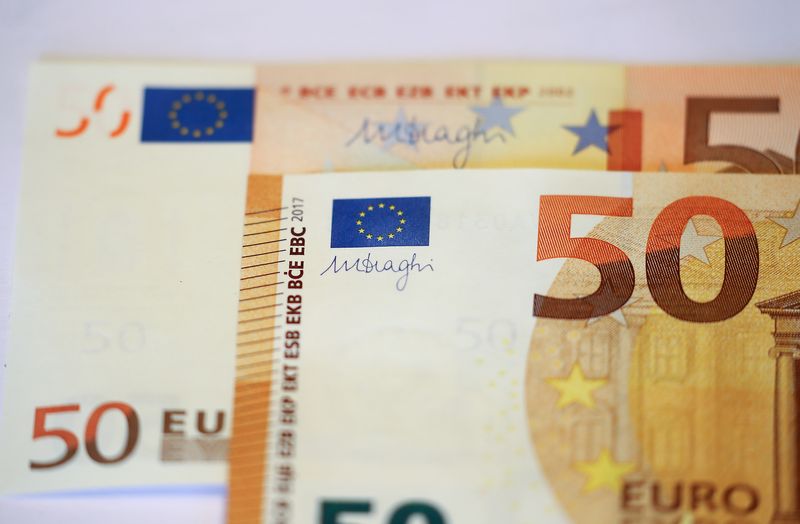Euro expected to hold ground despite political tremors: Reuters poll
By Sarupya Ganguly
BENGALURU (Reuters) - The euro will weaken modestly against the U.S. dollar this month before strengthening by year-end, despite financial markets pricing two more European Central Bank interest rate cuts by then, according to currency strategists polled by Reuters.
Having generally underperformed analyst expectations in Reuters surveys over the past year, the euro has fallen more than 1% since French President Emmanuel Macron called for a surprise snap election on June 9.
It then gained only slightly as Marine Le Pen's National Rally party won a smaller share of the vote than some polls had initially projected, despite firmly emerging ahead of the pack after the election's first round on June 30.
Still, the euro, which is down more than 2.5% against the dollar so far this year, would show resilience against a backdrop of heightened political uncertainty in the second-largest European Union member, according to currency strategists in a June 28-July 3 Reuters poll.
The median forecast for how far it could fall this month was $1.06, about 1.5% below where it was trading on Wednesday.
"If not for the French election dynamic in the background, we would have expected the euro to be much higher than where it is at the moment," said Dan Tobon, head of G10 foreign exchange strategy at Citi.
"But based on where the polls and market expectations are, we don't really see a lot of downside left," Tobon added.
Further ahead, the poll showed the euro strengthening in three months' time and by the year-end, even though the ECB was predicted in a separate poll to follow up its June rate cut with two more this year - in September and December.
The median projection from nearly 80 foreign exchange strategists was for the euro to gain nearly 1.5% to $1.09 by the end of this year and to trade at $1.10 at the end of the first half of 2025.
Back in January, the euro was seen climbing to $1.12 by the end of this year, but since then the resilience of the U.S. economy has made financial markets scale back their expectations for the Federal Reserve's rate cuts, bolstering the dollar.
Economists in a separate Reuters survey predicted two U.S. rate cuts this year, but flagged one, or even no rate cuts as a sizeable risk, which could put the euro under pressure.
"Markets may be over-pricing Fed rate cuts and in the short term, rate cuts elsewhere too ...There certainly is a risk we see more dollar strength than we're currently forecasting," said Erik Nelson, macro strategist at Wells Fargo Securities.
The dollar has gained more than 4% against a basket of major currencies since January, defying expectations it would weaken that were prevalent at the start of the year.
Japan's yen, down about 13% for the year to a 38-year low of 161.97 to the dollar on Wednesday, will be the biggest gainer among major currencies by year-end rising 6.5% to 152, the poll found.
So far, Tokyo has primarily relied on market interventions to support the yen, but when asked what the authorities could do to arrest its decline over the coming three months, most analysts said the Bank of Japan would need to hike interest rates aggressively.
"The longer (authorities) wait to take the field, the heavier the intervention has to be," said Roberto Mialich, currency strategist at UniCredit.
(For other stories from the July Reuters foreign exchange poll click here)
Source: Investing.com
